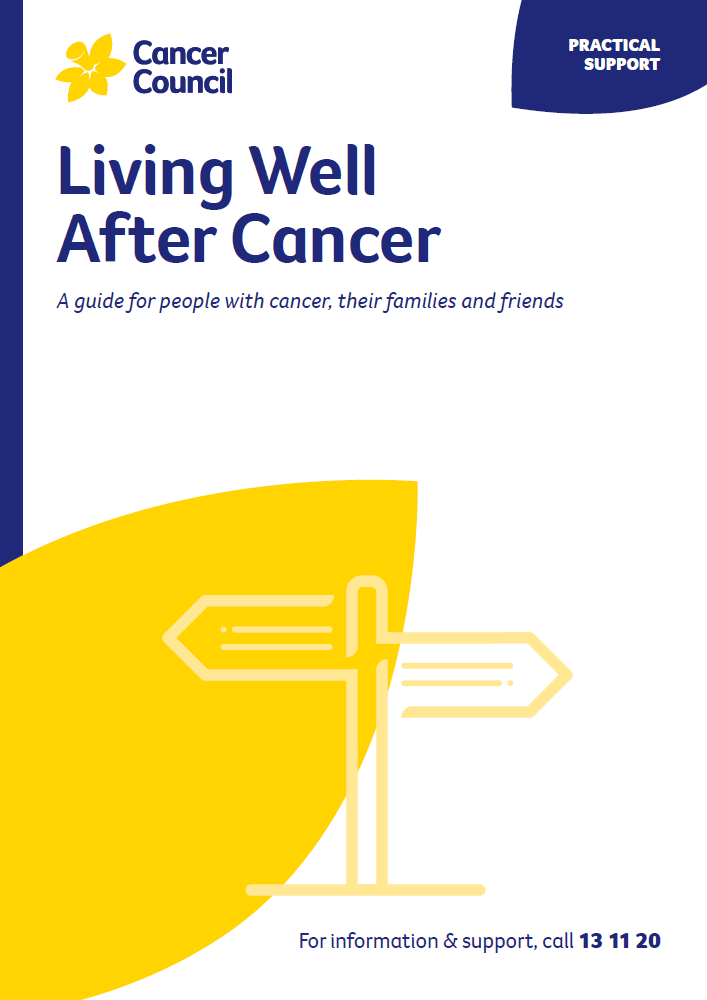- Home
- About Cancer
- Living well
- Living well after cancer
- Impact on family and friends
Impact on family and friends
After treatment is over, your family and friends may also need time to adjust. Research shows that carers can also have high levels of distress, even when treatment has finished.
Learn more about:
- Overview
- Will my family have a higher risk of cancer?
- When others don’t understand
- Coping with children’s needs
- Podcast: Family Dynamics and Cancer
Overview
Your cancer diagnosis may make people around you think about their own priorities and goals. And, like you, they may be concerned about the cancer coming back. Let your family and friends know that you understand it is hard for them as well. You may want to tell them how much you appreciate all they have already done to help you. If you still need support, let them know how it would be best for them to provide it.
People close to you can have a range of reactions when your cancer treatment ends. They may feel:
- relieved that you’re okay
- convinced that everything will go straight back to normal for you
- happy to focus on others and themselves again
- confused, especially if your relationship has changed
- upset that they are not in regular contact with the health care team
- pleased that cancer is no longer the main topic of conversation
- worried about what the future holds
- afraid that every little ache or pain means that the cancer has returned
- scared they will get cancer themselves
- a need to protect you and not let you do things for yourself.
Encourage your family and friends to seek support. They can call Cancer Council 13 11 20 or the Carer Gateway on 1800 422 737.
For more on this, see Caring for someone with cancer.
Will my family have a higher risk of cancer?
If you’ve had cancer, it doesn’t mean that your children will also get it. Most cancers are caused by a build-up of abnormal cells. These cell changes cannot be passed on to your children, so they won’t have a higher than normal risk of developing cancer.
However, having a strong family history of cancer may increase the risk of developing some cancers. This may be caused by inheriting a faulty gene linked to cancer, or by shared environmental or lifestyle factors. A family history of cancer means that there are a number of closely related family members diagnosed with the same cancer or with more than one cancer, often at a younger age.
Only about 5% of all cancers are linked to inherited faulty genes. If you are concerned about this, talk to your doctor. They may refer you to a family cancer clinic or genetic counselling service.
For more on this, see Genetics and cancer.
→ READ MORE: When others don’t understand
Podcast: Family Dynamics and Cancer
Listen to more episodes from our podcast for people affected by cancer
More resources
Prof Michael Jefford, Medical Oncologist and Director, Australian Cancer Survivorship Centre, Peter MacCallum Cancer Centre, VIC (clinical review); Lucy Bailey, Nurse Counsellor, Cancer Council Queensland; Philip Bullas, Consumer; Dr Kate Gunn, Clinical Psychologist and Senior Research Fellow, Department of Rural Health, University of South Australia, SA; Rosemerry Hodgkin, 13 11 20 Consultant, Cancer Council WA; Prof David Joske, Clinical Haematologist, Sir Charles Gairdner Hospital and Clinical Professor of Medicine, The University of Western Australia, WA; Kim Kerin-Ayres, Clinical Nurse Consultant, Cancer Survivorship, Concord Hospital, NSW; Sally Littlewood, Physiotherapist, Seymour Health, VIC; Georgina Lohse, Social Worker, GV Health, VIC; Melanie Moore, Exercise Physiologist and Clinical Supervisor, University of Canberra Cancer Wellness Clinic, ACT; June Savva, Senior Clinician Dietitian, Nutrition and Dietetics, Monash Cancer Centre, Monash Health, VIC; Dr Elysia Thornton-Benko, Specialist General Practitioner and Research Fellow, University of New South Wales, NSW; Prof Janette Vardy, Medical Oncologist, Concord Cancer Centre and Professor of Cancer Medicine, The University of Sydney, NSW; Lyndell Wills, Consumer.
View the Cancer Council NSW editorial policy.
View all publications or call 13 11 20 for free printed copies.

